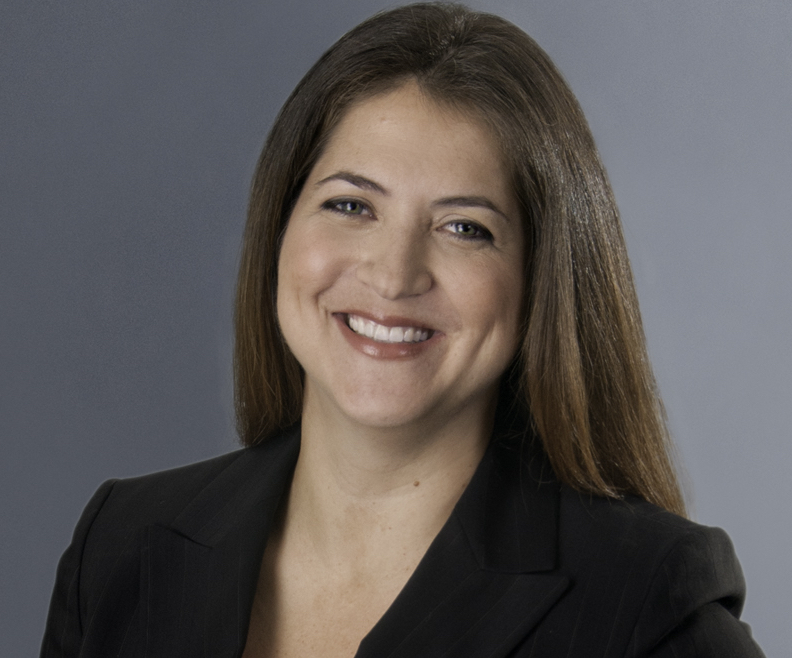Moving On: Congreso President and CEO Cynthia Figueroa
 August 9, 2016
Category: Featured, Long, People, Q&A
August 9, 2016
Category: Featured, Long, People, Q&A
Moving On is a series of Q&As with social impact leaders who are leaving their organizations for new opportunities. Here, they share what they learned and where they’re headed.
Cynthia Figueroa knows that the best way for nonprofit leaders to be able to vouch for their organizations is by seeing what they do at the ground level for themselves. She recommends having more transparency than the CEOs on “Undercover Boss,” though.
Figueroa is the outgoing president and CEO of North Philly-based nonprofit Congreso de Latinos Unidos, a multi-service agency that aims to “strengthen Latino communities through social, economic, education and health services, leadership development and advocacy.” The lauded former case manager will become the commissioner of the city’s Department of Human Services — where she served as deputy commissioner before joining Congreso five years ago — on Sept. 6.
In her Moving On interview, she talks with Generocity Editor Julie Zeglen about the importance of measuring outcomes, how government work informed her nonprofit work (and vice versa), and how going out into the field with her employees made her a better boss. Their conversation has been edited for length and clarity.
Generocity: So, why city government? Why is this the right time to make the move?
Cynthia Figueroa: I don’t see a big difference in the kind of work done in government and a nonprofit. And I’ve been in government before — I was in the Nutter administration for a short period of time as a deputy in the department that I’m going back to now, so for me, this continues to be an extension of the work that I’ve been committed to my entire career, which is trying to deliver the best for underserved communities and those who are at risk.
And the why now? There’s a lot of things. One is that I’ve been at Congreso for almost six years, and there’s certainly a lot more exciting things left in store for Congreso. That said, I also have this amazing team that is driving the organization and doing remarkable good will, so a transition of a CEO is not going to hurt or harm [it]. I think as a leader, you need to look sometimes to transition if the time is right for you and for your organization. I feel like I can move on to take on an even greater challenge because the organization is in such a great place. I also felt very called and compelled by some of the challenges that the department is facing that I feel I can have a really positive influence on.
G: How did your previous work as deputy commissioner of DHS inform your work at Congreso, and accordingly, how will your work at Congreso inform your new role with the city? You mentioned that even though we’re talking local government versus nonprofits, they’re not necessarily that different.
CG: Right, they’re not mutually exclusive of each other, and they actually rely on each other and are very tightly tied, whether it’s contractual or through serving the same communities. In general, there are not enough folks who have both experiences — both governmental and nonprofit — and I don’t say that to make myself stand out. I make it as a point that I wish there was actually a lot more of that, in terms of understanding what does it take to move an agenda within a government system because of its size, because of all the various stakeholders.
And at the same time, I think it’s really important those who work in government to have a better empathy and understanding of what it takes to work in the community and what it takes to run a nonprofit. When I came to Congreso after having served in the city, I felt like I had a different perspective in terms of what were priorities in government versus what I perceived were priorities.
G: You’ve spoken about the importance of measuring outcomes in the nonprofit world. What are some of the ways Congreso has done that under your watch?
CG: We do pre- and post-tests for our domestic violence education and training, and we’re recognizing that folks aren’t getting a particular topic area — they weren’t absorbing it — so in the post-test, it was staying the same. So, in real time, [we were] using data to edit the syllabus so the information that was trying to be conveyed was better conveyed and translating that change into improvement. I could give a million examples.
G: How did you know to implement outcome measurement in the first place?
CG: I can’t take credit for that. Congreso got national recognition of it during my tenure, but in the year 2000, we actually had some board members who said, “OK, this is great, we’re serving all these people, but how do we know we’re making a difference?” So, we stopped asking ourselves about quantity and starting asking ourselves about quality. We adopted our own kind of data software system, we created our own trademark service delivery, so it’s been a 16-year journey for the organization to become data-informed.
G: I also read that once a quarter, you go out in the field with your employees, and I thought that was really interesting because as far as I know, that’s not really common. How has that helped your work, and do you think this is something other nonprofit leaders should be adopting?
CG: One hundred percent. One of my rules is that I don’t want to go out with a chain of command. If a case manager is doing a house visit, I just want to go with the case manager. I don’t want pomp and circumstance, I just want to experience what they’re experiencing. And that’s true with our HIV/AIDS testing group, [which goes to] some really difficult locations — [I] do counseling and testing with them. I’ve answered the hotline. So, all these different things to be in the moment with the staff, to see the work through their eyes.
All too often, the voice and the face of nonprofits are the CEO. But my voice on behalf of Congreso can only be as strong as the validity of the work that’s happening on the ground. How do you talk about this work if you can’t be connected to it?
G: What is the transition looking like at Congreso? Is there a plan in place for finding your successor, or is there already somebody lined up?
CG: The organization always [assigns] an interim, so the CFO Dominique Bernardo will serve as the interim. The board of directors is conducting a search.
G: Do you plan to be involved with the organization in the future?
CG: Oh yeah, [I have] almost a 20-year history with the organization. It’s a part of my identity and it’s a part of what make me the leader that I am, so I’ll stay connected. Obviously I’ll have a different relationship with the organization that I have to be thoughtful about, but yes. Some of my closest friends in my life have come from former staff members that I’m close to now.
G: Anything else you’d like to share about this move, or leadership in general?
CG: I would just say about leadership and some of the things we’re seeing happening in this country right now: If you have the skill and the ability, you can’t stand on the sidelines. I felt very called to this, and it is really hard work, but I believe I can make a difference. Other people believe I can make a difference.
One of my favorite taglines is “Don’t pay attention to the noise,” and I think folks who want to say, “Oh, should I give you condolences versus congratulations?” [about working for city government] — you know, to me, that’s noise. I know it’s a hard job. I know the challenges, the difficulty and the heartache that I’m going to face, but I also know the resilience and the strength [I have], and I think I can make a difference along with other strong leaders beside me, so I’m ready.
Project
Moving OnTrending News











